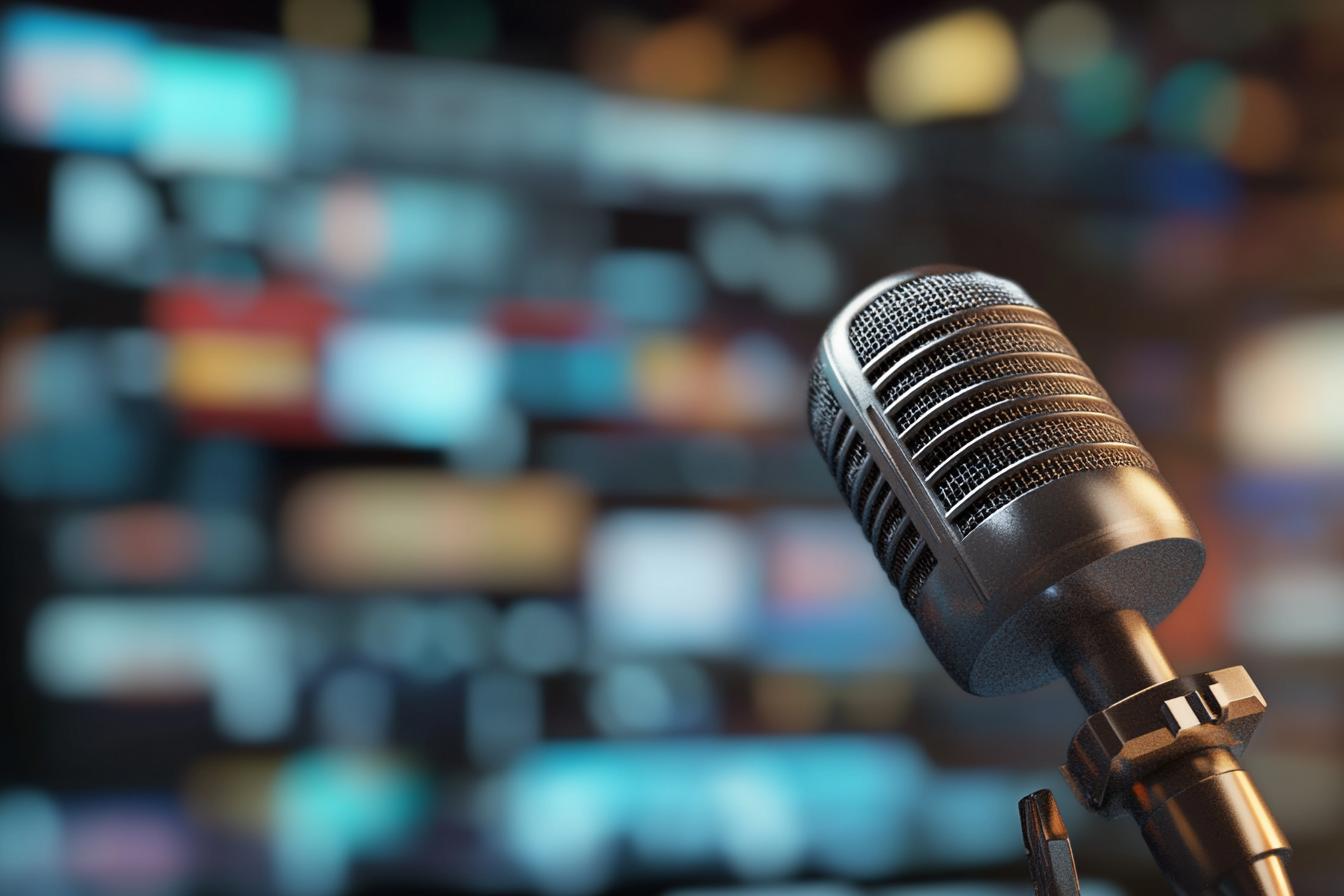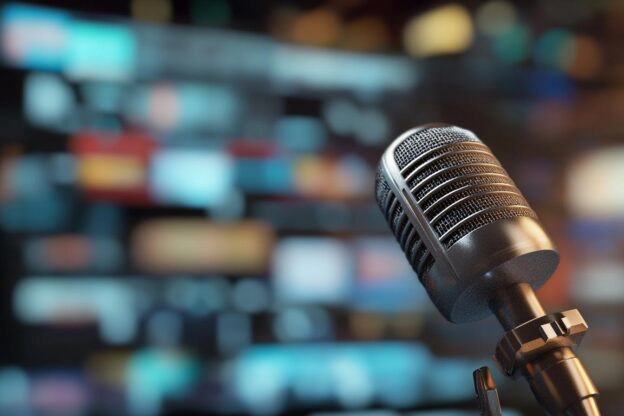Radio news education plays a vital role in shaping informed citizens and fostering a vibrant democratic society. It equips individuals with the skills and knowledge necessary to critically analyze information, identify bias, and discern truth from falsehood. Through engaging storytelling, expert interviews, and in-depth reporting, radio news education empowers listeners to become active participants in public discourse and make informed decisions about their lives and communities. For example, a radio program dedicated to explaining complex political issues can help listeners understand the nuances of different viewpoints and make informed choices during elections. This type of educational programming not only informs but also inspires critical thinking and responsible civic engagement.
Furthermore, radio news education is particularly effective in reaching underserved communities and individuals who may lack access to other forms of media. The accessibility of radio, its ability to transcend literacy barriers, and its potential to connect with audiences on a personal level makes it a powerful tool for disseminating information and promoting understanding. In regions with limited internet access or low literacy rates, radio can serve as a lifeline for education, empowering individuals with knowledge about health, agriculture, and other vital topics. By providing diverse perspectives and fostering dialogue, radio news education bridges divides, strengthens communities, and contributes to a more informed and engaged public.

Radio News Education
1. Radio News Education
Radio news education is a vital part of preparing individuals for careers in journalism and media. It provides students with the skills and knowledge necessary to gather, report, and disseminate news through the powerful medium of radio. This education encompasses a wide range of topics, including audio production techniques, interviewing and reporting skills, news writing and editing, and the ethical considerations of journalism. Students learn to craft compelling narratives, use sound effects effectively, and present information in a clear and concise manner. They also gain an understanding of the complex world of news gathering, including fact-checking, source verification, and the importance of impartiality.
Radio news education goes beyond technical skills and emphasizes the importance of critical thinking and analysis. Students learn to identify biases, evaluate sources, and present diverse perspectives. They also explore the historical evolution of radio broadcasting and its impact on society. This comprehensive approach helps students develop a well-rounded understanding of the role of radio in shaping public opinion and informing the public discourse. Through hands-on experience and practical training, radio news education equips students with the tools and confidence to succeed in the dynamic and ever-evolving world of media.
2. Journalism Skills for Radio
Radio journalism demands a unique set of skills to effectively convey information through the spoken word. Strong writing is essential, but you must also consider how your words will sound when spoken aloud. Clarity and conciseness are paramount, as listeners have limited time and attention spans. A good radio journalist can craft compelling narratives that capture attention and inform the audience, using vivid language and sound effects to create a memorable experience.
Furthermore, radio journalists need to be adept at interviewing and gathering information from diverse sources. They must be able to ask insightful questions, listen attentively, and synthesize information into concise and engaging reports. Since radio is an immediate medium, journalists must be able to adapt quickly to breaking news and deliver information accurately and responsibly.
3. Audio Production Techniques
Audio production techniques are essential for creating clear, compelling, and engaging radio news broadcasts. You’ll use microphones to capture sound, whether it’s an interview, a soundbite, or a reporter’s narration. You’ll need to choose the right microphone for the situation, such as a lavalier mic for interviews or a shotgun mic for recording sound from a distance. You’ll also use audio editing software to clean up recordings, remove unwanted noises, and adjust audio levels. This software allows you to combine different audio elements, like music, sound effects, and voiceovers, into a cohesive final product.
In addition to these basic techniques, you can also use more advanced techniques to create a dynamic and interesting audio experience. These techniques include using different audio effects, like reverb and echo, to add depth and dimension to your recordings. You can also use music and sound effects to create a specific mood or atmosphere. These techniques can make your radio news broadcasts more engaging and memorable.
4. News Gathering and Reporting
Imagine you’re a detective, but instead of solving crimes, you’re uncovering the stories that matter to your listeners. That’s the essence of news gathering and reporting. It involves finding information about current events, verifying its accuracy, and then crafting a clear and concise story that captures your audience’s attention. This process starts with identifying potential news angles – a local event, a national issue, or a trending topic. Reporters then use various methods to gather information, such as interviews, research, and observation. The goal is to understand the different perspectives of a story and present a balanced and objective account.
Once the information is collected, the reporting phase begins. Reporters carefully analyze the facts, synthesize the information, and present it in a way that is easy to understand and engaging. This often involves crafting a compelling narrative, highlighting key details, and using audio elements like sound bites or music to enhance the story. Remember, a good radio news report should be informative, concise, and accurate, keeping listeners informed about the world around them.
5. Ethics in Radio Journalism
Radio journalism, like all forms of journalism, operates on a foundation of ethical principles. These principles guide reporters in their pursuit of truth and accuracy, ensuring that the public receives reliable information. Journalists strive to be fair and impartial, presenting both sides of an issue while avoiding bias. They are also expected to be transparent, disclosing sources and potential conflicts of interest. Truthfulness and accuracy are paramount, as misinformation can have serious consequences.
Furthermore, radio journalists must adhere to ethical guidelines regarding privacy and the use of confidential information. They must respect the privacy of individuals and avoid publishing information that could cause harm. Journalists should also be mindful of the potential impact of their reporting on individuals and communities, ensuring that their work does not contribute to discrimination or prejudice. By upholding these ethical standards, radio journalists maintain public trust and contribute to a well-informed society.
Conclusions
So there you have it! From learning how to craft compelling radio news stories to mastering the art of audio production, you now have a solid foundation in radio journalism. You’ve explored the importance of ethical reporting, honed your news gathering skills, and discovered the unique techniques that make radio news so engaging. Whether you’re dreaming of a career in broadcasting or simply want to understand the world of radio news better, this knowledge will serve you well. Remember, the world of radio is constantly evolving, so stay curious, keep learning, and who knows, you might just be the next voice that captivates millions!
